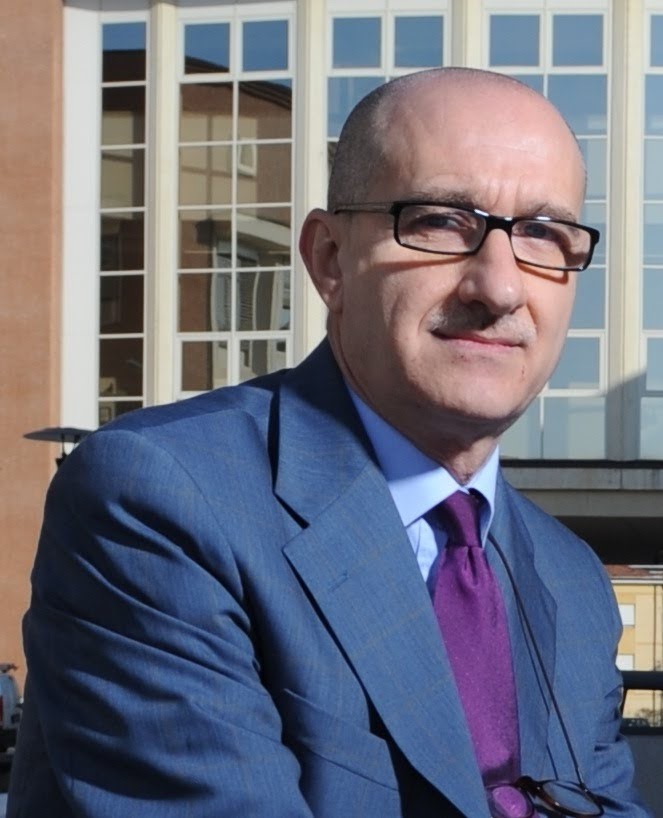– Aurelio Porfiri
I think there is little doubt when we say that the year 1968 was a crucial year for the development of our societies. Maybe this was felt more in Europe, North America, but I think that the influence of the ideas coming from the movements arising in that fateful year spread all over the world: the disdain for authority, sexual liberation, peace and love….these were some of the (nefarious) influences that come from that time and that now we can see alive and well in all developed societies (developed to a certain extent, we would like to say).
Not a long time ago I had interviewed Prof. Corrado Gnerre about 1968 – he had devoted a book to this topic. I had asked him if the ideas coming from ’68 have failed: “‘68 is not failed. Quite the opposite indeed. The behaviors given completely to instincts, but also the claim that man can decide at will about one’s body up to the complete biological identity cancellation (gender ideology) bear witness to how the ‘human revolution’ of ’68 is widely realized.”
A few weeks ago, a little booklet came together with the Italian newspaper Il Giornale. This booklet is called L’università tradita (“The University Betrayed”) and the author is Prof. Franco Battaglia, a scientist and with an active presence as a writer. In this booklet he dealt with education first but in doing so cannot avoid looking at the consequences from ’68. So, I requested another interview (having spoken with him before) to talk about education, ’68, climate change, vaccines etc.
1968: a crucial year. What is your memory of that?
I was little more than a child in 1968. However, when, a few years later, I entered university, the students’ protests did not stop. The universities were frequently occupied by left-oriented students. It did not take much time for me to realize that most of them were the worst students who demanded to pass the exams even though they did not deserve to pass. They considered themselves to be victims of a bad society who had to take the blame for their failure.
For you, what are the consequences of this year in our modern society?
Any sense of authoritativeness has been lost. People in a given area some with several years of experience and others with no experience at all are considered to be on the same footing. In the name of a dubious sense of democracy.
You just published a booklet called L’università tradita. Can you explain the focus of this booklet?
Italian universities are publishing in their internet homepage the results of questionnaires answered by students on the teaching quality of their professors. I’m opposing not the questionnaire or the right of students to have an opinion on their professors; I’m opposing the publication of the answer together with the idea that these are a real measure of the professors’ teaching qualities. The reason is that the question per se are the wrong ones. For instance, to ask the students whether the textbook suggested is a good textbook is a meaningless question because students lack the capability of providing an answer. Another meaningless question is to ask the students whether the lectures are clear: in Italy students are free not to study the course while attending the lectures; actually, the majority of the students do not study the course (they rather engage in it only for a few weeks before the exam, which in Italy can be taken also several months after the course has ended). However, students who do not study during the course, inevitably find the lectures unclear! Another question asks whether the professors provide “stimulating” lectures. But the stimulus should be in the students’ heart: university lectures are not like TV programs, where one comfortably sits to enjoy the show! The great English physicist, Michael Faraday, used to say: “Lectures which really teach are not popular, and lectures which are popular do not really teach.”
You talk about Italian universities but you have experiences also in foreign universities. How do your observations apply to them?
Whereas in Italy students can take their exam as they wish, also several years after a course has ended, abroad the exam is taken at the end of the course. Therefore, students must study the material while the course is taught, thus asking them whether the lectures have been profitable for their studies is a meaningful question to ask.
What you think of the students that evaluate professors?
Students may only have an uninformed opinion on their professors. A respectable opinion, I concede, but uninformed: by definition, they being students. To evaluate a professor (or a textbook) one needs another professor. And indeed, when back in 1987 I became professor, I was evaluated by a committee of nine older professors; and in that occasion I was asked to give in front of them a one-hour lecture on a subject which was given to me 24 hours earlier. The committee, after evaluating my scientific production and judging the quality of my lecture decided that I could be nominated professor. I had been professor for three years when another committee of senior professors gave another judgment on my performance, until I became tenured professor. I would be very happy if other professors would attend my lectures and judge my performance, but deny that this should be done by students: by definition they do not know what they are asked to judge.
And your opinion about questionnaires?
Just garbage. The questions have been formulated by some bureaucrat with no knowledge both in science or teaching.
Let us talk about science. What you think of the actions of Donald Trump on climate change?
He is the voice of the most qualified and sound science.
Wow, your answer is really synthetic. Maybe we need to investigate a little about this again. So, can you tell us your opinion on global warming?
It’s real, but it has nothing to do with human emissions. It is very simple to explain why. Human-caused GW advocates claim the following: 1) The CO2 concentration has increased from 300 ppm (part per million) to a dangerous level of 400 ppm; 2) This increase in CO2 has increased the temperature by 0.8 Celsius during the last 160 years; 3) This temperature increase has increased the number of extreme weather events, such as hurricanes. Now: 1) Your living room is about 100,000 liters, 100 ppm of which are 10 liters; but 10 Liters of CO2 are obtained by burning a birthday-cake candle! 2) 0.8 Celsius is not even fever for the human body, whose temperature covers a range of 7 Celsius (from 35 to 42 Celsius); what could it be for a Earth whose temperature covers a range of 100 Celsius (from –50 at the Poles to +50 at the Equator)? I would say that climate has been extraordinarily stable during the last 160 years! Nothing that could be called dangerous-climate-change. 3) From 1850 to 2010 America has been hit by 20 grade-4 hurricanes: 10 between 1850 and 1930 and 10 between 1930 and 2010. I don’t see any increase.
Ok, our opinion is really clear on that, even if I think that you will have to deal with many scientists who think the opposite. But this is true for many scientific issues. We talk a lot in Italy about compulsory vaccinations or not. What you think about this?
A vaccine has defeated smallpox all over the world. Vaccine may defeat many other viruses, and definitely keep them under control. A responsible society would make well-tested vaccination programs compulsory. Why, otherwise, a society would invest billions in research against this or that illness if, once a remedy has been found, it didn’t make use of it? To defeat the spreading of viruses is necessary to keep its diffusion under control, which means that citizens must be participate to vaccination programs. Those who insist on their freedom not to take part in them, should not take advantage of a public health system when get sick.
Environmentalism: one of the magic words of our era. Can you comment on that?
It has been a deadly movement. Worse than Nazism, Communism and Terrorism together. Think of it: the first environmentalism’s victory has been the ban of DDT all over the world. Before the ban, DDT saved millions from malaria, after the ban millions started to die again from malaria. I could go on with several more examples.


 Follow
Follow


